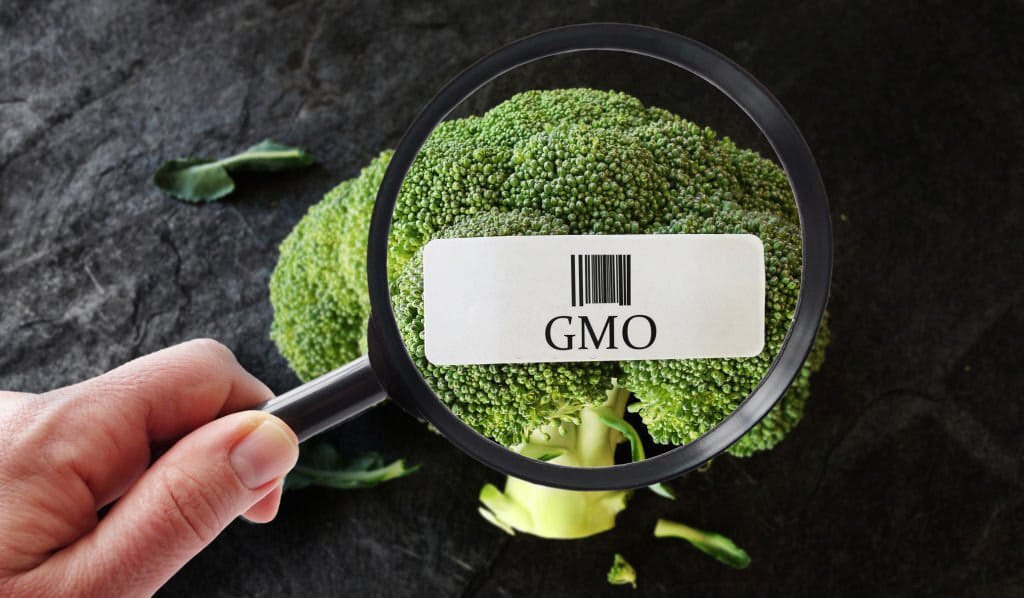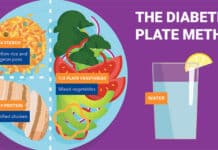GMOs, or “genetically modified organisms,” include any plant or animal that the DNA has genetically altered from another plant, animal, bacteria, or virus through artificial engineering, which produces an organism that does not occur in nature outside of human influence.
For example, by injecting insect DNA into a plant, that plant can be “genetically modified” to exhibit desired properties of the insect, thereby causing the plant to (for instance) produce a “pesticide” that wards off or kills other insects.
Genetically modified (GM) crops have been around since the mid-90s, beginning with soybeans as our first wide-scale introduction of bioengineered food. Today, nearly all of the soy and corn in the US (and many regions of the world) have been genetically modified.
Most Common GMO Crops
GMOs have been restricted in the food supply of 60 countries around the globe and banned in over two dozen of them. As of April 2014, GMO labeling (to alert consumers of their presence in food) is not required in the US, and therefore GM crops continue to be the subject of much controversy.
It's estimated that 80% of processed food (and even some fruits and vegetables) in the US is produced with GMOs, so if you're eating fast food or anything that comes in a wrapper, bag, or box, the probability is high that it will contain GMOs.
High-risk GM crops are corn, soy, alfalfa, canola, cotton, papaya, sugar beets, zucchini, and summer squash, but because of cross-pollination or known incidents of contamination, chard, table beets, bok choy, cabbage, turnips, flax, rice, and wheat, also pose a significant risk of being genetically engineered.
Are GMOs Safe To Eat?
A limited number of studies are available regarding human consumption of GMOs, and most of the existing research has been performed by biotech companies themselves, which immediately makes it suspect. There have NOT been any long-term studies conducted at all.
A small amount of animal research has been carried out with frightening results:
In the first-ever GMO feeding study, rats fed GMO “chow” were 5-6 times more likely to have died by the 17th month of life. Also noted was a frequent negative impact on heart, adrenal, spleen, kidney, and liver function, as well as multiple tumor formations in the liver and female reproductive organs.
In March 2013, researchers noticed blood cell damage in mice fed the particular GMO now present in 90% of US corn crops.
In 2006, Russian scientists observed increased infertility and lowered birth weight in rats fed GM soy. By the third generation of offspring, the rats fed GMOs were sterile.
Those who oppose GMOs in the food supply (including myself) fear that bio-engineered food will result in similar harmful outcomes as trans fats, artificial sugar, and high fructose corn syrup (which were once considered “safe”) and be discovered as a disease-causing agent decades after we've already been eating them.
In fact, we have been eating them for decades without realizing it.
Given its past failures to protect the public, the food industry should bear the responsibility of properly testing and researching any chemical or unnatural product it is introducing into our food supply (without our knowledge) rather than be forced to remove them only after millions have been harmed or killed.
Who's Looking Out For Us?
Certainly, biotech companies like Monsanto and Syngenta will do the right thing and ensure GMOs are safe for human consumption, right?
Here is a quote from Philip Angell, Monsanto's Director of Corporate Communications,
“Monsanto should not be forced to guarantee the safety of biotech food because it is the FDA's job to do this.”
Hmmmm, okay. Then the FDA will monitor these companies for our protection. That's the entire purpose of their existence, right? But here is what the FDA said,
“Food producers should be held accountable for ensuring safety. Food producers should take safety measures to ensure that people get safe food.”
So neither agency is taking responsibility for safeguarding consumer welfare.
And in case you develop cancer or other health problems from consuming hidden GMOs over a lifetime, the US Federal Government has shielded biotech companies from any litigation with the passing of the Agricultural Appropriations Bill, which included a provision sheltering genetically modified seeds from lawsuits in the face of health risks.
The rider strips federal courts of the power to stop the planting and selling of GMO seeds. This means that Monsanto and other companies can continue to sell GMO seeds without fear of being stopped by the government.
Do you feel safe?
Most Common GMO Ingredients
To find GMOs in the food products you buy, check the ingredient labels.
Common ingredients derived from GMO risk crops include amino acids, citric acid, sodium citrate, aspartame, vitamin C, sodium ascorbate, ethanol, high fructose corn syrup, flavorings, hydrolyzed vegetable protein, maltodextrin, textured vegetable protein (TVP), lactic acid, xanthan gum, sucrose, monosodium glutamate, yeast products, and vitamins.
*Children should avoid kids' cereals, snacks, and other foods containing high-risk ingredients, including processed meats and crackers.
Special Note: We've noticed lately that more and more products are being labeled “GMO-free” or using “non-GMO soy.” This is especially true with weight loss, and protein shakes being sold by your family and friends. There is a short supply of non-GMO soy globally, and it is statistically impossible for every company to be using it. Ask your distributor for the name and address of the company from which the shake manufacturer is getting their soy, and then verify it for yourself. In addition, although the particular shake powder may indeed be free from GMO soy, other ingredients may still be genetically modified. Many cheap supplements contain ascorbic acid, citric acid, natural flavorings, sucrose, and xanthan gum, all of which carry a high risk of being processed with GMOs.
Can We Truly Be GMO-Free?
According to the USDA,
“Organic foods are grown using natural methods. They are not made from genetically modified organisms. Farmers and producers can't use GMO seeds, cows can't eat GMO alfalfas, and soups can't contain GMO ingredients. Farmers and producers are required to prove that they are not using genetically engineered crops or animals. These products are protected from contact with prohibited substances such as genetically engineered plants or animals during production.”
So at this time, we can avoid GMOs by purchasing USDA Certified Organic food bearing the USDA Organic label. *It is important to note that the phrase “GMO-free” is not officially regulated and cannot be trusted.
Bulletproof Your Food Choices: Non-GMO verified foods are safe and healthy for human consumption. Organic certification doesn't require GMO testing. Both non-GMO verified and certified organic products are the safest and most nutritious choices. You can also get the Non-GMO Shopping Guide from its app to help with your grocery shopping.






